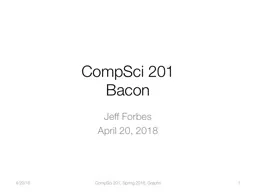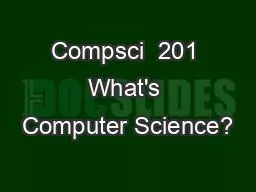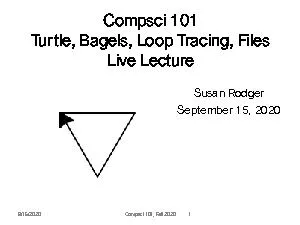PPT-CompSci 725 Handout 6: Oral Presentations, Projects and Term Reports
Author : lois-ondreau | Published Date : 2019-11-29
CompSci 725 Handout 6 Oral Presentations Projects and Term Reports 1 August 2012 Clark Thomborson University of Auckland 1Aug12 Assessment 15 oral seminar You will
Presentation Embed Code
Download Presentation
Download Presentation The PPT/PDF document "CompSci 725 Handout 6: Oral Presentatio..." is the property of its rightful owner. Permission is granted to download and print the materials on this website for personal, non-commercial use only, and to display it on your personal computer provided you do not modify the materials and that you retain all copyright notices contained in the materials. By downloading content from our website, you accept the terms of this agreement.
CompSci 725 Handout 6: Oral Presentations, Projects and Term Reports: Transcript
Download Rules Of Document
"CompSci 725 Handout 6: Oral Presentations, Projects and Term Reports"The content belongs to its owner. You may download and print it for personal use, without modification, and keep all copyright notices. By downloading, you agree to these terms.
Related Documents














